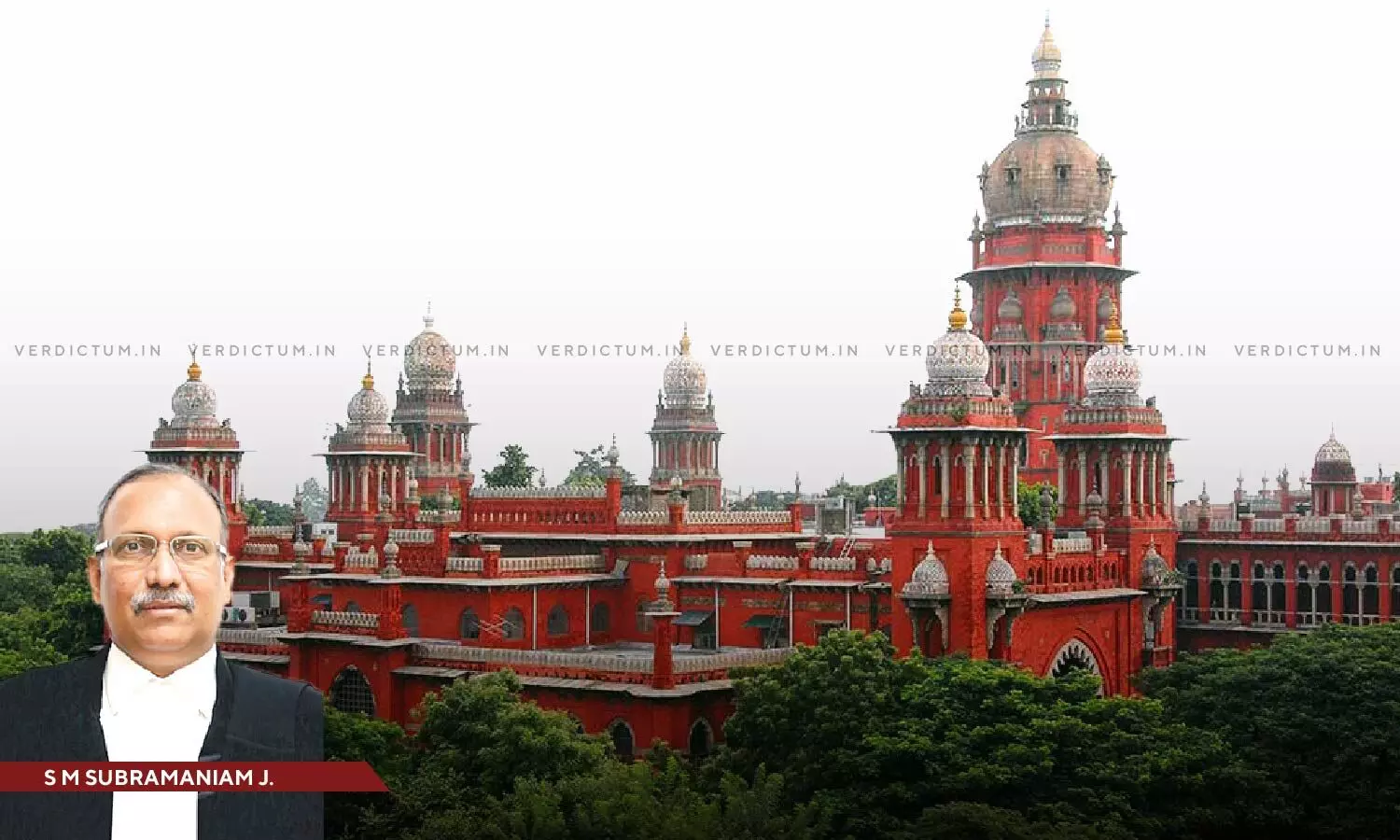
Tribal Women Entitled To Equal Share In Family Property, Exclusion In Hindu Succession Act Won’t Come In Way Of Inheritance: Madras HC
 |
|The Madras High Court has held that Tribal women are entitled to equal share in their family property on par with the other male coparceners and that the exclusionary provision, Sub Section (2) of Section 2 of the Hindu Succession Act, 1956 will not come in the way of their inheritance.
The Court was dealing with an appeal preferred against the judgment passed by the Trial Court by which the suit was decreed in favour of the wife and daughter who claimed an equal share in the family property.
A Single Bench of Justice S.M. Subramaniam observed, “Nothing has been shown about the custom and practice prevailing in the community, where the parties to the lis on hand belong. But the tribal women are deprived of adopting the Hindu Succession Act. Therefore, Sub Section (2) of Section 2 of the Hindu Succession Act 1956, will not come in the way of inheritance of the property by the daughters belonging to the tribal area, where Hinduism and Buddhism are followed. … this Court has no hesitation in arriving at a conclusion that the Trial Court has rightly applied the provision of the Hindu Succession Act and granted the relief of partition in favour of the plaintiffs, which requires no further interference.”
The Bench confirmed the judgment and decree passed by the Trial Court and said that the Tamil Nadu Government shall initiate necessary steps for the purpose of issuing appropriate notification through the Central Government under Section 2(2) of the Hindu Succession Act 1956, to protect the equal property right of the tribal women in the state of Tamil Nadu.
Advocate C. Jagdish appeared on behalf of the appellants while Advocate K. Siva Subramanian appeared on behalf of the respondents.
Brief Facts –
The Trial Court decreed the suit in favour of the plaintiff/respondent, who claimed an equal share in the family property by instituting a suit for partition. The Trial Court invoked the provisions of the Hindu Succession Act and held that the Tribal women are also entitled to an equal share in their family property on par with the other male coparceners and hence, the defendants/appellants in the suit chose to file an appeal suit.
The respondents were wife and daughter who were seeking a partition of a property and claimed that they are entitled to 2/5 equal and separate shares. The appellants denied the right to property. The Trial Court adjudicated the issues with reference to the documents and evidence and formed an opinion that the appellants had not established their case and therefore, the respondents are entitled to an equal share in the property.
The question that arose for consideration before the High Court was whether the Tribal women in the State of Tamil Nadu can be excluded from their share in the family property under the Hindu Succession Act. The Court in this regard noted, “He who relies upon custom, varying the general law, must plead and prove it. Customs must be established by clear and unambiguous evidence. It is to be proved that it is not opposed to public policy, more specifically not unconstitutional.”
The Court further noted that the legislature did not intend any inequality or unconstitutionality in the matter of inheritance as far as the scheduled tribe women are concerned.
“Section 2(1)(c) is exhaustive and more so, cannot be construed as an exclusion clause. It is inclusive as far as the schedule tribe women are concerned and Section 2(2) only provides an opportunity to adopt custom and practice only if it is certain and not opposing public policy”, said the Court.
The Court also said that Articles 14 and 15 of the Constitution applies to the tribal community which includes tribal women as well and that the backwardness of tribal population in Tamil Nadu is not prevailing to such an extent to form an opinion that the custom of such tribal community is to be adopted.
“There is no such custom and practice established in the present case, by the defendants and therefore, the question of application of custom and practice in the matter of inheritance in the present case would not arise at all. … This Court is of the considered opinion that the relationship between the parties are not in dispute and admittedly the ground mainly raised is the exclusion clause under Section 2(2) of the Act and in view of the elaborate discussion in the aforementioned paragraphs, the said exclusion clause is inapplicable with reference to the facts and circumstances of the case on hand”, asserted the Court.
Accordingly, the Court dismissed the appeal and confirmed the judgment of the Trial Court.
Cause Title- Saravanan & Anr. v. Semmayee & Ors.
Click here to read/download the Judgment